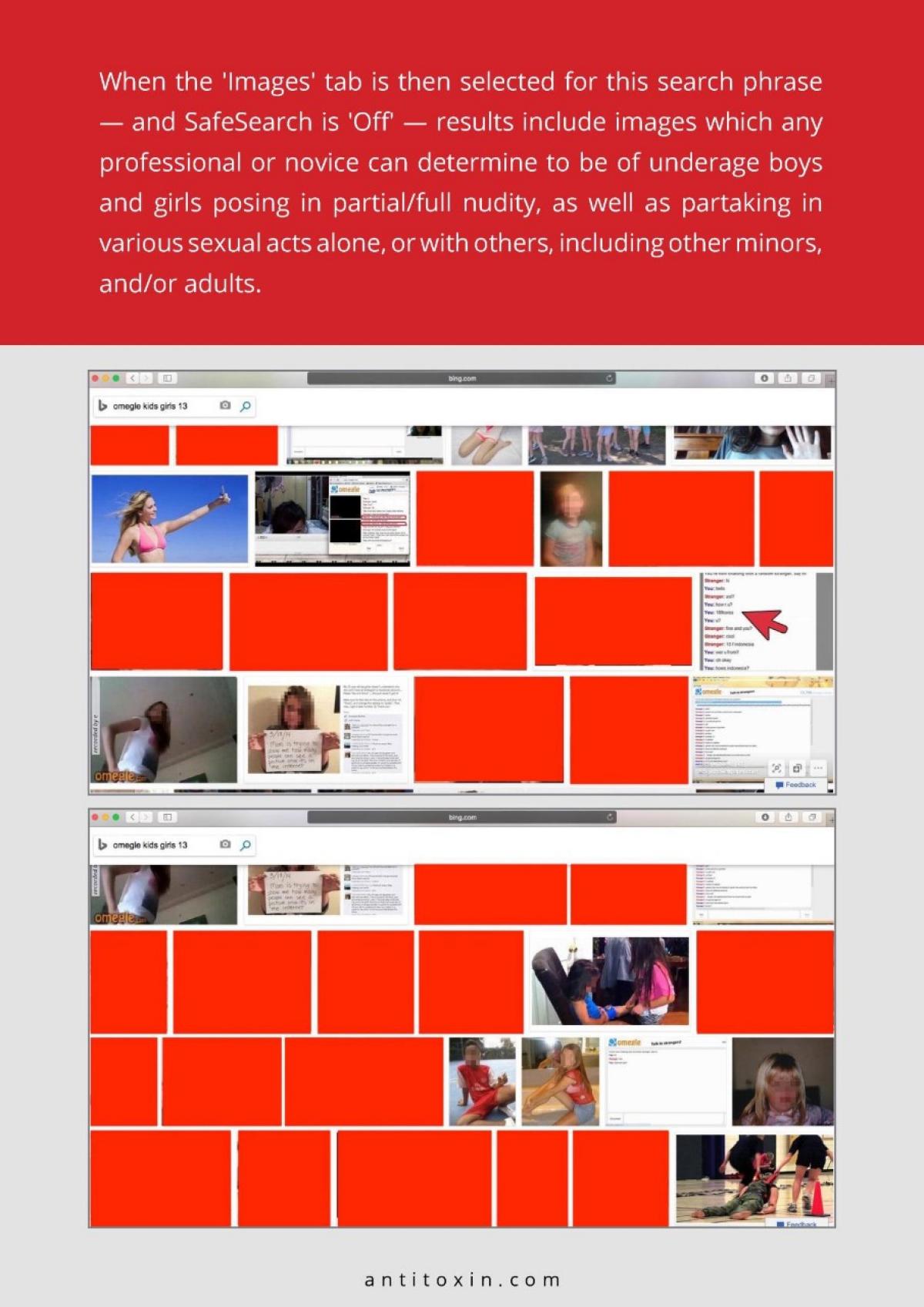Microsoft's search engine Bing has been serving up images of child abuse and exploitation, and even suggesting new terms users could search for to find more illegal content, an investigation has found.
Technology news site TechCrunch asked anti-exploitation firm AntiToxin to look into the matter after receiving an anonymous tip, with "alarming results".
Searching for child porn was easy - obvious terms like 'kids porn', 'nude family' and 'porn CP' brought up more illegal imagery than legal.
Even searches for innocent material were interpreted as a search for child porn, AntiToxin's report found.
"When researchers searched for 'Omegle Kids', referring to a video chat app popular with teens, Bing's auto-complete suggestions included 'Omegle Kids Girls 13' that revealed extensive child pornography when searched," TechCrunch's Josh Constine wrote.
"And if a user clicks on those images, Bing showed them more illegal child abuse imagery in its 'Similar Images' feature."
Bing already blocked obvious search terms like 'child porn'.
- New play sees teenagers tackle harm caused by porn
- 'Sextortion': The porn scam targeting New Zealanders
Heavily censored screenshots posted by TechCrunch showed the majority of images presented by Bing, when its 'Safe Search' function was turned off, were illegal.

In response, Microsoft said the findings were "unacceptable" and appreciated being made aware of the problem.
"We acted immediately to remove them, but we also want to prevent any other similar violations in the future. We're focused on learning from this so we can make any other improvements needed."
- Christchurch man with 29,000 child sex abuse images jailed
- Revealed: Thousands of Kiwis try to access underage sex sites daily
The company, the world's second-most valuable, said it had assigned an engineering team to fix it.
"We index everything, as does Google, and we do the best job we can of screening it," a spokesperson told TechCrunch.
"We use a combination of PhotoDNA and human moderation but that doesn't get us to perfect every time. We're committed to getting better all the time."
PhotoDNA is also used by Google, Twitter, Facebook and Adobe to stop child abuse images from being spread on their networks. Since 2016 it's also been used to block terror imagery uploaded by the likes of Islamic State and al-Qaeda.
Bing's woes come just weeks after Facebook-owned Whatsapp was found to be hosting child porn networks, hiding behind the app's encryption technology.
The full AntiToxin report, How Microsoft's Bing Assists in Searching for Child Pornography, can be read on TechCrunch's website. The investigation was carried out "in conjunction with Israeli authorities", AntiToxin says, and its findings were passed onto law enforcement authorities.
Newshub.
